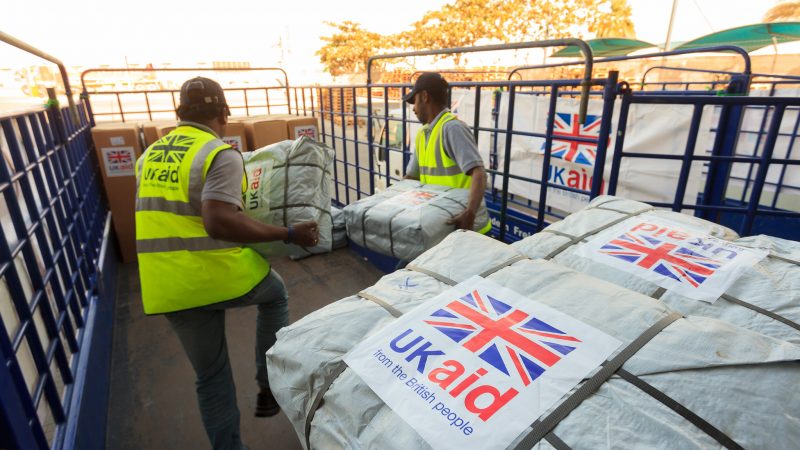“These cuts risk having a lethal effect on the chances of a lasting peace here," says Christian Aid's James Wani.

The government’s controversial aid cuts have claimed their latest victim, as Christian Aid announces the end to its peace-building work in South Sudan.
The Christian charity’s funding supported local peacebuilding efforts, helped political leaders implement the recent peace agreement, and carried out anti-hate speech campaigning.
The project, which was run by the South Sudan Council of Churches in collaboration with Christian Aid, also countered fake news and misinformation about Covid-19 and vaccines.
But the project has been terminated as a result of the UK’s 59% cut in aid to the country.
The charity has called for the government to reverse its decision to reduce funding.
Christian Aid’s chief executive Amanda Khozi Mukwashi said: “We join a growing number of Conservative MPs here in asking that the UK Government reverse its aid cuts to South Sudan and other affected countries, and work with us to consign conflict and famine to the history books.
“We also ask that the UK Government recognises the unique role the Church plays in peacebuilding in South Sudan as it marks its tenth anniversary as a country.”
The Church plays a key role in peacebuilding in South Sudan, and has been consistently identified as one of the few South Sudanese institutions with the ability and credibility to address the root causes of conflict.
Church leaders played a crucial role in ending the conflict through the 1972 Addis Ababa agreement and still retain respect from political and military leaders.
They are also supported by members of the global Church, including the Pope, the Archbishop of Canterbury Justin Welby, and the former Archbishop Dr Rowan Williams, who is Christian Aid’s chair.
James Wani, Christian Aid’s country director in South Sudan, said: “These cuts risk having a lethal effect on the chances of a lasting peace here. The Church continues to build trust between the parties and provide moral guidance through amplifying the voices of grassroots communities to build political will for peace.
“The Church reaches across the nation through deep local networks, and has played an important role in local peacebuilding for decades, while striving to ensure that local voices and concerns are reflected in the national-level process.”
The country faces a hunger crisis with over 7 million people, which make up 60% of South Sudan’s population, struggling to get enough food to live on. 82% are living in extreme poverty.
According to the UN, six of the country’s counties are categorised as being in a ‘Phase 5 Catastrophe’, which means people face starvation, death, destitution and malnutrition.
The Christian Aid work in South Sudan is not the only overseas project to be axed as a result of the aid cuts.
A £13 million project providing health care services in remote areas of Bangladesh was cancelled, according to Concern Worldwide.
The charity said: “Currently, there is an outbreak of a diarrhoeal disease in one of the areas where we work. This project would have been in a position to respond but now we are unable to.
“Diarrhoeal disease is the second leading cause of death in children under five years old so it is likely that this decision to cut funding will result in preventable deaths.”
Women for Women International have announced that active female empowerment projects in Nigeria and Afghanistan will be closed.
The U.K. Embassy in Indonesia is ending the Green Economic Growth for Papua programme, which helped prevent deforestation.
Many other projects and charities are facing huge difficulties with large amounts of funding being withdrawn.
The UK NGO sector has condemned the government’s aid cuts and has urged the government to reverse its decision.
In a statement, organisations supported by millions of British people, including Save the Children, Oxfam, ONE, Christian Aid, Care International and The HALO Trust said: “The announcement is a tragic blow for many of the world’s most marginalised people the UK once supported, and for the UK’s reputation as a trusted development partner.
“The government has not even spared countries ravaged by humanitarian crisis, disease, war and poverty. When other nations are stepping forward and bolstering their aid budgets, the UK has instead chosen to step back.”
Alexandra Warren is a freelance journalist.
To reach hundreds of thousands of new readers we need to grow our donor base substantially.
That's why in 2024, we are seeking to generate 150 additional regular donors to support Left Foot Forward's work.
We still need another 117 people to donate to hit the target. You can help. Donate today.



